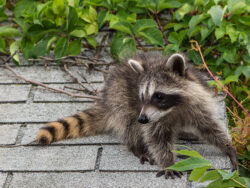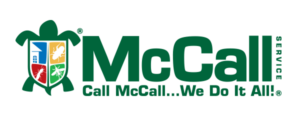Warmer weather sparks the emergence of animals from their hibernation, and many homeowners are not aware that wildlife have taken refuge inside their homes during the cold months! When the weather starts to warm up, the overwintering pests will wake up and come out in droves looking for food and water. While most wildlife creatures are harmless, others can cause considerable damage to your property and health. Check out these common spring wildlife to look out for and how you can prevent them from invading!
Common Spring Wildlife
- Skunks: These creatures are regularly active in the spring, giving birth to their first litter in early to mid-spring. Skunks can cause damage to your property by burrowing under buildings. They are known to spray noxious fumes when they feel attacked or concerned. They can also be a health risk as they are the second most common carrier of rabies.
- Raccoons: While these creatures do not hibernate, they are less active in the winter. Raccoons will also have their young in the springtime, searching for food and water to nourish them. These animals are dexterous and can easily get inside our trashcans at night. Raccoons are also known carriers of rabies.
- Squirrels: Once their hibernation period is over, squirrels will wake up to look for food and nesting sites. These creatures will have their first litter in the spring. If they invade homes, they are often found in our attics and wall voids, where they will chew on electrical wires, causing a risk of fires.
- Rodents: While rodents are active year-round, the warmer months do provide them with more food sources and will increase their activity. Rodents, including rats and mice, can pose a serious health risk as they are known to contaminate food and spread diseases. These creatures are often found in our attics, basements, and crawlspaces.
Spring Wildlife Prevention
While wildlife can be cute from afar, they can become a problem if they get inside our homes. Wildlife control begins with the preventative measures you place at home. Check out our do-it-yourself wildlife prevention tips:
- Keep your garbage stored in a tightly sealed trashcan with a secure lid.
- Remove outdoor food sources, including birdseed and pet food.
- Utilize wire mesh or chicken wire to block off openings under porches, decks, patios, and garages.
- Keep your windows locked and screened in.
- Trim your tree branches and shrubs away from the roofline of your home.
- Regularly clean your gutters to prevent water from pooling to create potential nesting sites.
Placing these precautions around your house is a great way to deter wildlife creatures from your home. However, if they get inside, it’s best to call your local Florida wildlife control company for help. These professionals can evaluate your home, identify the wildlife type, safely remove any animals on the property, and recommend the best prevention treatment for the future.



